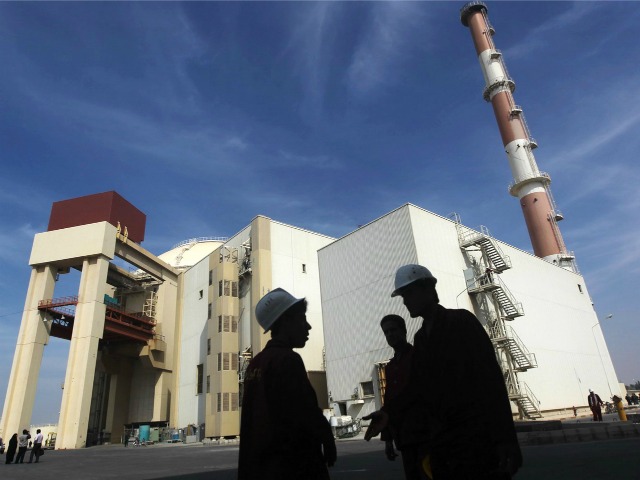
This morning’s key headlines from GenerationalDynamics.com
- Russia’s Putin declares Crimea to be a ‘sovereign and independent state’
- Does Iran’s anti-nuclear fatwa really exist, as claimed?
- U.S. special forces capture pirate Libyan oil tanker in Mediterranean
Russia’s Putin declares Crimea to be a ‘sovereign and independent state’
As expected, Russia will not immediately annex Crimea, despitethe fact that Crimeans voted overwhelmingly to do so on Sunday.According to the decree signed on Monday by presidentVladimir Putin:
“Considering the will of the peoples of Crimeaexpressed at the all-Crimea referendum on March 16, 2014, I herebydecree that the Republic of Crimea, where the city of Sevastopolhas a special status, be recognized as a sovereign and independentstate.”
This is similar to what Russia did in 2008, after Russia invadedGeorgia. Russia took control of two Georgian provinces, Abkhazia andSouth Ossetia, but did not officially annex them to Russia. Theannexation thus was “de facto,” not “de jure.”
In the case of Georgia, international outrage settled down within afew months, and everything returned to business as usual. PossiblyPutin hopes the same thing will happen with respect to Crimea.
The other possibility, being advanced by some analysts, is that Putinwants to postpone annexing Crimea until after a new invasion ofUkraine allowing Russia to annex either eastern Ukraine or all ofUkraine, along with Crimea. Itar-Tass (Moscow)
Does Iran’s anti-nuclear fatwa really exist, as claimed?
The interim nuclear agreement that the West signed with Iran inNovember has been very troubled from day one. The full text of thatagreement has never been published. U.S. Secretary of State JohnKerry said that under the agreement Iran had no right to enrichuranium, while Iran’s foreign minister Mohammad Javad Zarif gloatedthat Iran had preserved its right to enrich uranium. The White Housepublished a “summary,” but Iran completely rejected the White House summary as “not true.” Then,in January, Iran disclosed that there was a secret side agreement tothe nuclear agreement. The White House first confirmed this, sayingthat the side agreement would be made public, and then denied thatthere was a secret side agreement
In selling the interim nuclear agreement, President Barack Obamafrequent referred to a fatwa issued by Iran’s Supreme Leader AyatollahSeyed Ali Khamenei that Iran’s nuclear program is entirely peaceful,and that forbids the development of nuclear weapons. The fatwasupposedly says, “the production, stockpiling and use of nuclearweapons are forbidden under Islam and that the Islamic Republic ofIran shall never acquire these weapons.”
The problem is that Obama has apparently never actually seen thisfatwa, and apparently neither has anyone else. Iranian and Arabwriters have been examining Obama’s claim, and they say that there isno such fatwa. The closest thing to it that’s verifiable is a sloganfrom Khamanei:
“Nuclear weapons for no nation, nuclear energy for allnations!”
U.S. special forces capture pirate Libyan oil tanker in Mediterranean
This story could be the plot of a situation comedy.
Following the 2011 overthrow of Muammar Gaddafi, the eastern region ofLibya, formerly known as Cyrenaica and now called the Barqa Region, isbeing governed by rebels who demand to secede from the Libya headed bythe government in Tripoli — and keep their oil wells for themselves.
A major drama played out in Libya over the last two weeks. A NorthKorean-flagged oil tanker, the Morning Glory, docked in the port ofAs-Sidra in “Barqa.” The rebels loaded it up with $38 million worthof crude oil from Libya’s wells. The Tripoli government said that ifthe oil tanker leaves port, it would be bombed. The rebels said thatif it’s bombed, then it would be a “declaration of war.”
Then Libya’s prime minister in Tripoli announced that the oil tankerhad been captured, and that it was under control of Libya’s navy. Thenext thing we heard was that the oil tanker had slipped away anyway.The prime minister was sacked, and he’s now fled to Europe.
So the oil tanker headed to the waters near Cyprus, where the piratesbegan trying to sell off their oil. Both Cyprus and Libya asked forAmerica’s help, and early Monday morning, a U.S. SEAL commando teamboarded the tanker from a Naval special warfare rigid inflatable boatand took control. No one was injured. The ship will be returned toTripoli.
Despite the comedic nature of this story, the serious side is thatLibya is in chaos. The country is essentially being run by individualmilitias, with little government control over the country. TheMorning Glory incident may not be fully played out, but even if it is,it’s going to lead to retribution in its aftermath. Reuters
Permanent web link to this article
Receive daily World View columns by e-mail

COMMENTS
Please let us know if you're having issues with commenting.